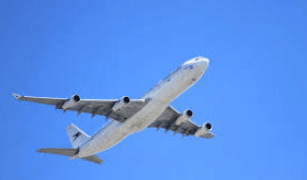
The decision by the Federal Government to devalue its currency has had a very serious impact on not only the entire economy but has taken a significant toll on the entire aviation value chain.
The two most noticeable areas that costs have been felt most the area of fare pricing and the 300 per cent increase in the ground handling charges by the Nigerian Aviation Ground Handling Company Plc and the Skyway Aviation Handling Company Plc; the two firms that have become duopoly in the business.
The only set of people that have yet to raise charges is the Nigerian Airspace Management Agency (NAMA) whose overdue navigational charge raise has been met with stiff resistance, forcing the Minister of Aviation and Aerospace Development, Mr. Festus Keyamo to prevail on the agency to suspend the implementation.
All other agencies in aviation have retained old charges even though the carriers complain of so many taxes and implored the government to harmonise them into fewer categories. While ticket prices today have gone up astronomically to as high as between N150,000 to N200,000 for a one-way economy ticket owing to the prevailing economic circumstances, NAMA navigational charges have remained the same since June 2008.
The preamble brings one to the spiralling costs in the aviation industry and the greater impact on profit. The two aviation firms had in November raised ground handling rates by 300 per cent. They stated that the review was necessary due to the economic reality in the country, which it said had nosedived since the last review was made about three years ago.
The argument in some quarters is that if the airlines could raise their fares by over 400% in the last one and a half years, it amounts to shooting itself if the charges remain the same considering the high cost of operations. Chairman of the Aviation Ground Handlers Association of Nigeria (AGHAN), Mr. Olaniyi Adigun, while justifying the proposed increment said: “We are all in the same economic environment as the airlines, but while other sectors such as catering and fueling have adjusted, ground handlers have been left behind.
Adigun emphasised: “Groundhandling equipment, from GPUs (Ground Power Units) to RA3 and ISAGO certifications, all come with costs denominated in dollars,” add ing that the dollar-naira exchange rate, diesel prices, and high taxes compound these costs, leaving ground handlers with thin margins.
He called for tax waivers and customs rebates on imported equipment, explaining that reduced import costs would enable ground-handling companies to pass savings onto airlines, which could potentially stabilise rates. “High taxes inflate the cost of business operations, which in turn impacts service rates.
Reducing these taxes would not only help our sector but could boost the wider economy,” he said, arguing that tax cuts could stimulate demand, support job creation, and help reduce inflation. The clarification is coming amid opposition to the increase which the Managing Director of Aero Contractors, Capt Ado Sanusi said was uncalled for.
He warned that such a drastic increase would wreak havoc on Nigeria’s already fragile aviation industry, further deepening its challenges. Sanusi criticised the Nigeria Civil Aviation Authority (NCAA) for backing the proposed hike in ground handling charges. He accused the regulatory body of facilitating what he termed a “cartel-like” operation by ground handling companies, warning that such actions could destabilise the aviation sector.
Sanusi added that allowing such steep increases set a dangerous precedent, potentially encouraging other aviation service providers to exploit the industry further. But not a few had equally lambasted the airline under the aegis of Airline Operators of Nigeria (AON) for arbitrarily hiking fares when the indices do not support over 500% increase in fares while preventing others from ‘recovering’ their costs as well.
Some believe that aviation is becoming expensive as everyone hides under high costs of operations to increase charges while preventing others from doing exactly what they have done to equally remain in business. The spiral effect of the imposition of charges and taxes only points in one direction. The costs are passed to the passengers. The market tends to react with just too many costs in the industry and that may have resulted in a low propensity to fly.
Please follow and like us:


